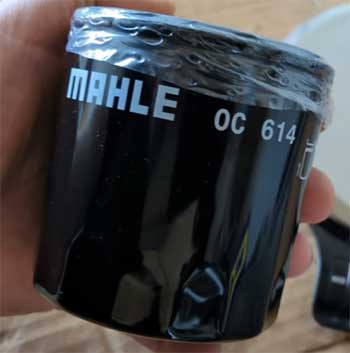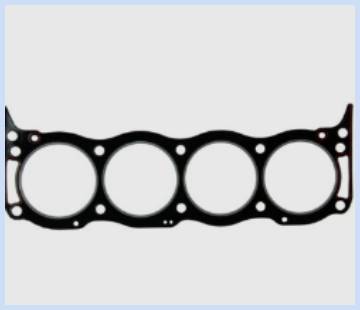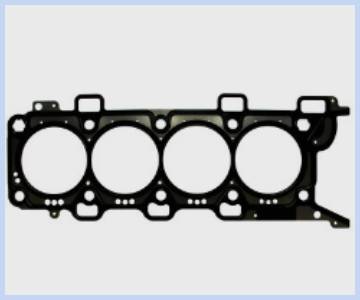If you’re here, you’re probably in the middle of choosing between Mahle and Fel-Pro for your engine gaskets, most likely for a rebuild or repair project.
I’ve been in that spot, and I know how crucial it is to get it right the first time. This article is here to help you make a smart decision—not just based on specs, but real-world performance, user experience, and value.
Whether you’re chasing reliability, compatibility, or long-term peace of mind, I’ll walk you through exactly how Mahle stacks up against Fel-Pro.
Mahle Vs. Fel-Pro Comparison Table
| Feature | Mahle | Fel-Pro |
| Country of Origin | Germany | United States |
| Known For | OEM-quality gaskets | Aftermarket repair gaskets |
| Material Composition | Multi-layer steel (MLS), graphite | PermaTorque MLS, rubberized fiber |
| Fit & Finish | Precise OEM fit | Custom aftermarket fit |
| Availability | Often used by auto manufacturers | Widely available aftermarket |
| Performance Use | Preferred in high-performance | Great for daily drivers and repairs |
| Price Range | Generally higher | More affordable |
| Oil Sealing Technology | Bead sealing, high-temp coatings | Blue rubber sealing beads |
| Gasket Sets | Comprehensive engine kits | Specialized sets for common issues |
| Warranty | Limited manufacturer warranty | Federal-Mogul-backed warranty |
My Hands-On Experience with Mahle and Fel-Pro

I’ve installed both Mahle and Fel-Pro gaskets in different vehicles over the years—everything from budget daily drivers to turbocharged builds.
Each time, the choice came down to what the car needed and how much abuse the engine would take.
When I rebuilt my WRX’s EJ257 engine, I opted for Mahle’s multi-layer steel head gasket. The tolerances were spot-on.
No trimming, no sanding, just bolt-on and torque to spec. It felt premium right out of the box.
Even after some aggressive tuning and long highway pulls, it held strong. No coolant seepage. No oil leaks.
Then there was my old workhorse, a 2004 Chevy Silverado. That one got a full Fel-Pro kit, including the famous PermaTorque head gasket.
Honestly, the installation was easy—Fel-Pro includes excellent guides, and their gaskets are clearly labeled.
It’s user-friendly, especially if you’re doing a repair job in your own garage without a lift.
But I noticed something over time. While the Fel-Pro gaskets worked well at first, the valve cover started to seep oil about 15,000 miles later.
Not a failure, but definitely something to keep an eye on. It wasn’t a major problem, and honestly, for the price and ease of install, it was still a win.
That said, Mahle has been more “set it and forget it” in my experience. Once installed, it holds up well over the long haul—even when pushing the engine hard.
Fel-Pro shines in its accessibility and value, especially if you’re doing a repair on a tight budget.
So which one is better? It really depends on your project. Let’s break it down by pros and cons.
Pros and Cons of Mahle

Pros:
- Excellent OEM-level fitment
- MLS construction ideal for boosted or high-compression engines
- Durable under extreme heat and pressure
- Frequently used by major car manufacturers
- Long service intervals with fewer re-torque requirements
Cons:
- Higher price point compared to Fel-Pro
- Limited availability for some domestic models
- Not always beginner-friendly in terms of install instructions
Pros and Cons of Fel-Pro

Pros:
- Affordable and widely available
- Tailored for repair applications with extra sealing support
- Easy-to-understand labeling and instructions
- Compatible with older and high-mileage engines
- Great value for general maintenance and repairs
Cons:
- May wear out faster under extreme pressure or heat
- Oil seepage can occur over time, especially with valve cover gaskets
- Not always suitable for high-performance or racing applications
Key Differences That Matter to You
The biggest difference between Mahle and Fel-Pro lies in the intended use case.
If you’re building a high-performance engine or turbocharging a car, Mahle is going to be your more reliable bet.
Their gaskets are engineered for consistency and built with premium materials that hold up to racing-level abuse.
Fel-Pro, on the other hand, is built for accessibility. It’s what you grab when you need to fix a leak this weekend and get back on the road by Monday.
Their instructions are designed with DIYers in mind, and they’ve cornered the market on gaskets for domestic engines like GM, Ford, and Chrysler.
So if you’re doing a head gasket on a naturally aspirated Ford Taurus with 150,000 miles? Fel-Pro is likely the better fit for your wallet and your garage.
But if you’re building an engine with forged pistons and big boost plans? Mahle won’t let you down.
Performance Under Pressure

I’ve run Fel-Pro gaskets on vehicles that tow, haul, and rack up a lot of city miles. In most cases, they do the job. But once you start turning up the cylinder pressure or track the car on weekends, the weaknesses show.
Mahle’s MLS gaskets are heat-treated, laser-welded, and have consistent clamping force.
You feel the quality during installation—everything aligns better and torques evenly. In high-load scenarios, Mahle holds compression and doesn’t weep oil or coolant.
Fel-Pro counters with innovations like PermaTorque and blue rubber seal beads, which are fantastic for sealing imperfect or warped surfaces.
But if the head isn’t perfectly machined, you may get premature failure over time, especially with thinner gasket models.
Real-World Longevity
From my observation, Mahle-equipped engines tend to stay sealed longer under tougher conditions.
Fel-Pro tends to perform well during the first 20,000–30,000 miles post-install, which is often enough for the average driver. But if your goal is to avoid repeat teardown, Mahle gives you more runway.
That’s not to say Fel-Pro doesn’t make great products—they absolutely do.
Their valve cover and intake manifold gaskets are some of the easiest to work with, especially in high-mileage engines with pitted surfaces.
But for engine builds and critical systems, Mahle feels like a long-term investment.
Installation Experience
Installing Fel-Pro gaskets is like working with a kit designed for someone at home with a socket set and a YouTube video.
Their gaskets are labeled, color-coded, and often come with instructions printed right on the packaging.
Torque specs, sequence—everything’s there. That’s a huge win when you’re trying to get things done over the weekend.
Mahle expects a bit more from you. The gaskets often come in vacuum-sealed packs with little guidance.
You’re expected to know the torque sequence, prep the mating surfaces perfectly, and follow procedures like angle torqueing and thread cleaning.
Not a dealbreaker, but definitely a factor for beginners.
Also Read: My Experience With K-Seal Head Gasket Repair
Material Quality and Design
Mahle’s use of MLS (multi-layer steel) technology isn’t just marketing fluff. The layered design allows the gasket to flex and conform under heat cycles while maintaining a strong seal.
They also include features like micro-sealing beads and elastomer coatings that improve sealing at oil and coolant ports.
These touches really matter when you’re running synthetic oil at high temps or pushing coolant through a boosted engine.
Fel-Pro tends to use a blend of composite and fiber materials, especially on budget kits.
Their premium sets do include MLS head gaskets, but even those are tailored for ease of use rather than extreme durability.
Brand Philosophy and Manufacturing
Mahle comes from a long history of OEM relationships. When a manufacturer builds an engine in a factory, there’s a good chance it leaves the line with a Mahle gasket.
That means tighter tolerances, more testing, and predictable outcomes.
Fel-Pro is an aftermarket brand through and through, backed by Federal-Mogul.
Their focus is on solving repair problems with accessible parts and solutions. It’s a different mindset—one that values flexibility over rigidity.
Both approaches are valid. It just depends on what you’re trying to accomplish.
When to Choose Mahle
- You’re rebuilding a high-performance or turbocharged engine.
- You want long-term durability and OEM-grade materials.
- You’re comfortable with precise installation techniques.
- You’re already upgrading other engine internals and want reliability.
When to Choose Fel-Pro
- You’re fixing a leak or doing general maintenance.
- Budget is tight and you need something that works now.
- Your engine has high mileage and needs a forgiving gasket.
- You’re doing the job yourself and want something user-friendly.
Also Read: Comparison Of BlueDevil Vs. K-Seal
Frequently Asked Questions (FAQs)
Multi-layer steel (MLS) gaskets like those from Mahle are typically the most reliable, especially under high pressure and temperature.
Fel-Pro offers some of the best valve cover gaskets in terms of price, availability, and ease of installation.
No. Mahle and Victor Reinz are separate companies, though both offer high-quality gaskets. Victor Reinz is often compared to Mahle in terms of OE fitment.
Fel-Pro is owned by Federal-Mogul, which is now part of DRiV Incorporated, a Tenneco brand.
Final Thoughts
So, which should you pick?
If you want something that lasts under punishment, Mahle is your brand. It’s more demanding during install, but the payoff is fewer leaks, longer service life, and peace of mind under pressure.
If you’re doing a standard engine repair and need something quick, affordable, and easy to work with—Fel-Pro is hard to beat. It’s built with the everyday driver and DIY mechanic in mind.
You don’t always need the most expensive or the most advanced gasket. You need the right one for your engine, your budget, and your goals.
I’ve used both. I trust both. But now that you know the differences, the right choice should be a lot easier for you.

